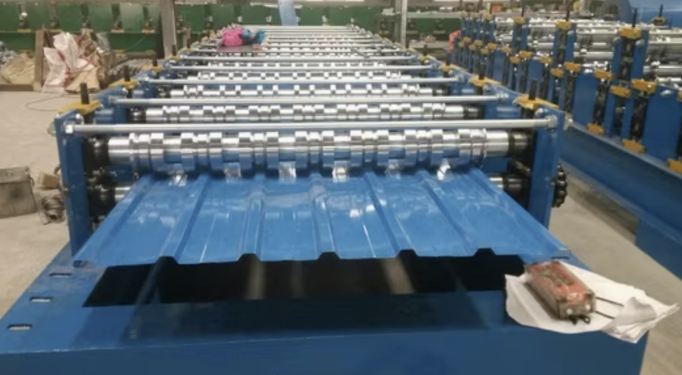Jordan's roll forming machine market presents a landscape of both challenges and opportunities, influenced by the nation's economic conditions, industrial capabilities, and regional dynamics.
Challenges:
- Limited Industrial Base: Jordan's industrial sector is relatively small, which can lead to lower demand for specialized machinery like roll forming machines. This limited market size may deter international manufacturers from establishing a significant presence, potentially resulting in higher costs and limited availability of advanced equipment.
- High Import Costs: As Jordan relies heavily on imports for industrial machinery, buyers often face elevated costs due to shipping, tariffs, and taxes. These additional expenses can make acquiring roll forming machines more burdensome for local businesses.
- Technical Expertise Shortage: Operating and maintaining sophisticated machinery requires skilled personnel. Jordan may experience a shortage of technicians trained in the latest roll forming technologies, leading to operational inefficiencies and increased downtime.
- Supply Chain Vulnerabilities: Global supply chain disruptions, such as those experienced during the COVID-19 pandemic, can significantly impact the availability and timely delivery of machinery and spare parts, hindering production schedules.
Opportunities:
- Construction Sector Growth: Jordan's construction industry is expanding, driven by urban development and infrastructure projects. This growth increases the demand for metal components like roofing sheets and structural profiles, creating a market for roll forming machines tailored to these applications.
- Regional Export Potential: Jordan's strategic location offers access to neighboring markets in the Middle East and North Africa. By investing in roll forming technology, local manufacturers can produce metal profiles for export, tapping into regional construction and industrial needs.
- Government Initiatives: The Jordanian government is implementing policies to boost industrialization and attract foreign investment. Incentives such as tax breaks and subsidies for machinery imports can make acquiring roll forming machines more feasible for local businesses.
- Training and Development Programs: Collaborations between educational institutions and industry can address the skills gap by offering specialized training in roll forming technology. Developing a skilled workforce enhances operational efficiency and attracts investment.
- Technological Advancements: The global roll forming machine market is experiencing technological innovations, including automated servo-electric systems and enhanced product designs. Adopting these advancements can improve production efficiency and product quality, providing Jordanian manufacturers with a competitive edge. Future Market Insights
By navigating these challenges and leveraging the available opportunities, Jordanian industries can enhance their capabilities in metal forming, contributing to economic growth and regional competitiveness.




